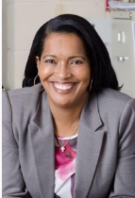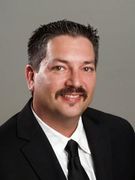Heart of the Primaries, Democrats-Issue 28 (August 13, 2018)

This week: Recapping Hawaii primary results, and previewing the Aug. 14 primaries. Click here to follow developments on the Republican side. Have a tip or see something we missed? Email us at editor@ballotpedia.org. And please share this newsletter with your colleagues!
Upcoming filing deadlines: None
Passed filing deadlines: 51 (including Washington, D.C.)
Upcoming elections: August 14 (Connecticut, Minnesota, Wisconsin)
Declared U.S. Senate and U.S. House candidates: 1,180 Democrats, 1,029 Republicans
Democratic pundits on the news
Where do Democratic and progressive pundits disagree? Each week in Heart of the Primaries we bring you excerpts that highlight differing views.
“If you thought that Alexandria Ocasio-Cortez’s upset primary win over Rep. Joe Crowley meant the Democratic Party was poised to go socialist, think again.
Tuesday night’s largely Midwest primaries produced a near-shutout for the anti-establishment left. Ocasio-Cortez partnered with Bernie Sanders to make a series of splashy endorsements that, in the end, failed to clinch victories. And two leftist upstarts hoping to emulate Ocasio-Cortez, and defeat longtime Democratic incumbents, fell far short.’”
- Bill Scher, Politico, Aug. 8, 2018
“In truth, there’s nothing surprising about left-wing candidates losing their primaries. The happy surprise is how many are winning. Unsexy as it sounds, the real story of progressive politics right now is the steady accumulation of victories — some small, some major — thanks to a welcome and unaccustomed outbreak of left-wing pragmatism.”
- Michelle Goldberg, New York Times, Aug. 8, 2018
Hawaii primary results
Gov. Ige fends off primary challenge
Gov. David Ige (D) defeated five primary challengers including Colleen Hanabusa (D), who holds one of Hawaii's two U.S. House seats, in Saturday's primary. Ige received 51.4 percent of the vote to Hanabusa's 44.4 percent.
Hanabusa, who is serving her third term in the House, opted to challenge Ige rather than seek re-election. She presented herself as a change candidate, according to political science professor Colin Moore, pointing to what she argued were Ige's failings during his first term. Among Hanabusa's endorsers were the Hawaii Government Employees Association—the state's largest union—as well as Rep. Tulsi Gabbard (D) and Ige's former lieutenant governor Shan Tsutsui (D).
Ige, who won election as governor in 2014 after defeating incumbent Neil Abercrombie (D) in the Democratic primary, pointed to what he argued were his achievements since taking office, including low unemployment rates, a reduction in homelessness, and an initiative to expand access to air conditioning in public schools. His 2014 victory over Abercrombie remains the only successful primary challenge to a sitting Hawaii governor. A Rutgers University analysis found that since 1948, 35 governors seeking re-election have been defeated in primaries.
Gabbard defeats two challengers in HI-02
Rep. Tulsi Gabbard (D) defeated two challengers and secured the Democratic nomination in her re-election bid in Hawaii’s 2nd Congressional District, receiving 83.6 percent of the vote to challenger Sherry Alu Campagna’s (D) 12.3 percent. Gabbard had a big lead in cash on hand coming into the primary, with over $2.2 million more than either opponent. Gabbard was endorsed by Our Revolution, End Citizens United, and many labor unions.
Challenger Sherry Alu Campagna (D) was endorsed by the National Education Association (NEA) and their local affiliate, who said that their rare endorsement of a challenger against a Democratic incumbent was a made in opposition to Gabbard’s policy of non-intervention in Syria. The district has elected a Democrat in every election since its creation in 1971.
Former Rep. Ed Case (D) wins HI-01 primary, marking likely return to Congress
Former U.S. Rep. Ed Case (D) defeated state Senate President Donna Kim (D), Lt. Gov. Doug Chin (D), and four other candidates in the Democratic primary for Hawaii's 1st Congressional District.
Kim and Chin started the race as frontrunners, topping fundraising through the second quarter of 2018 and bringing name recognition to the campaign trail. Kim had served in the state Senate for nearly two decades, while Chin received national press for filing a court challenge as state attorney general to President Donald Trump's executive order on immigration in 2017.
Case entered the race on June 5—the final day for candidates to file—and topped subsequent polls. He had previously represented the neighboring 2nd Congressional District from 2002 to 2007.
Hawaii's 1st is rated a safe Democratic district by three race ratings outlets.
Connecticut
Ganim and Lamont seeking gubernatorial nomination
Bridgeport Mayor Joe Ganim (D) and businessman Ned Lamont (D) are seeking the Democratic gubernatorial nomination. Current incumbent Dan Milloy (D) is not seeking re-election.
Lamont has emphasized his job creation and infrastructure plans as well as his endorsement from the state party. Lamont ran for governor in 2010 and earned the state party's endorsement before losing the primary to then-Stamford Mayor Dan Malloy. Lamont defeated incumbent Sen. Joe Lieberman (D-Conn.) in the 2006 primary but lost the general election re-match with Lieberman, who ran as an independent.
Ganim is in his sixth mayoral term. He emphasizes urban development and education spending. Ganim said his 2015 re-election as mayor after serving seven years in prison following a 2003 conviction on federal extortion, bribery, and mail fraud charges inspired his gubernatorial bid. Ganim says he hopes to make the most of his second chance.
Lamont has criticized Ganim’s criminal record, while Ganim said Lamont's personal wealth limits his understanding of the difficulties working families face.
Democrats have won Connecticut in every presidential election since 1992 and hold all seven of the state's congressional offices. But Malloy's 21 percent approval rating and Democratic Party's losses in the 2016 legislative elections have led some observers to believe the GOP has a chance to win the governor’s race in November.
The August 14 primary is open only to registered Democrats.
Glassman and Hayes face off in CT-05 primary
The Democratic primary for Connecticut’s open 5th District seat pits former Simsbury Selectman Mary Glassman against 2016 National Teacher of the Year Jahana Hayes.
Progressive influencers have lined up behind Hayes, who is running on her education background, support for a single-payer health care system, and personal story of growing up in poverty. Hayes would be the first black Democrat to represent Connecticut in Congress.
Hayes’ endorsers include U.S. Sen. Kamala Harris (D-Calif.), the Service Employees International Union, and the Congressional Progressive Caucus. U.S. Sen. Chris Murphy (D-Conn.), who represented the district before his Senate victory in 2012, encouraged Hayes to run.
The state party endorsed Glassman and three of Connecticut’s five U.S. House members attended a fundraiser for her. Glassman’s policies are similar to Hayes’, but Glassman supports protecting and expanding the Affordable Care Act over single-payer health care.
Glassman says she is best suited to win the 5th District, which backed Hillary Clinton over Donald Trump by 4 percentage points in 2016.
Bysiewicz and Bermudez Zimmerman battle for Democratic LG nod
Susan Bysiewicz, a 56-year old attorney and former secretary of state and state legislator, faces 31-year old labor activist Eva Bermudez Zimmerman for the lieutenant gubernatorial nomination.
The candidates represent different wings of the party. Bysiewicz endorsed Hillary Clinton in the 2016 Democratic presidential primary and Bermudez Zimmerman backed Bernie Sanders.
The state party endorsed Bysiewicz, who was running for the gubernatorial nomination until Ned Lamont convinced her to run for lieutenant governor as his preferred candidate.
Bysiewicz touts her government service and her readiness to fulfill the lieutenant governor’s responsibilities. Bysiewicz says she could run both the state government, if the governor could no longer serve, and effectively preside over the state Senate.
Bermudez Zimmerman declared her candidacy just days before the May 19 party convention, where she unexpectedly received 40 percent of the vote.
Bermudez Zimmerman and her allies argue Democrats need both a more racially diverse statewide ticket and a candidate who can motivate voters in November.
Our Revolution and the Connecticut Working Families Party endorsed Bermudez Zimmerman.
Minnesota
Five candidates seek gubernatorial nomination
Party-endorsed candidate Erin Murphy (D) faces four other candidates, including Lori Swanson (D) and Tim Walz (D), in the Democratic gubernatorial primary.
Murphy’s party endorsement doesn’t mean the primary is a sure thing. Retiring incumbent Gov. Mark Dayton (D) defeated party-endorsed state Rep. Margaret Kelliher (D) to win the nomination in the 2010 election.
Murphy was elected to the state House in 2006 and was Majority Leader following the 2012 elections. She has touted her experience as a nurse and labor organizer, as well as her endorsements from Gov. Dayton, the state party, the SEIU, and the AFSCME.
Swanson is serving her third term as state attorney general, and often refers to cases her office has litigated in her campaign. Swanson joined the gubernatorial race shortly before the filing deadline after the state party did not endorse her for a fourth term as attorney general. Swanson is running on a ticket with Rep. Rick Nolan (D).
Walz has represented the state's 1st Congressional District since 2007. He has highlighted his background as an Army National Guardsman and public school teacher as well as his endorsement from the state's largest labor union, Education Minnesota.
The three candidates have clashed on guns. Murphy criticized Walz and Swanson for receiving "A" ratings from the National Rifle Association in the past while touting her own "F” rating. Walz points to his current "F" rating while criticizing Swanson for her previous "A" rating.
Swanson points to her office's litigation challenging the distribution of blueprints for 3D-printed firearms as well as her current "C" rating.
The Aug. 14 primary is open to all registered voters.
Smith faces former Bush ethics lawyer in special Senate primary
Incumbent Sen. Tina Smith, Richard Painter, and four other candidates are running in the Democratic primary for the special Senate election. Smith was appointed to replace Al Franken, who resigned in January amid sexual harassment allegations.
Rep. Keith Ellison called Smith "a progressive champion." Her platform includes universal health care and prohibiting LGBTQ employment discrimination.
Painter, who was an ethics lawyer in the George W. Bush administration and long identified as Republican, cited his criticisms of President Trump when announcing his candidacy. Painter has campaigned on replacing the Tax Cuts and Jobs Act and supporting Medicare for All.
Smith and Painter have sparred over copper-nickel mining in the state. Painter says it poses environmental risks, while Smith says the state's review process will ensure the project’s safety.
The Democratic-Farmer-Labor Party (DFL), which endorsed Smith, accused Painter of "blatant political opportunism and [an] attempt to deceive voters" after he declined to call himself a Democrat in an interview. Painter said his "allegiance is to the people of the United States of America" as opposed to a party.
The winner of the November special election will serve out the remainder of Franken's term, ending January 2021.
Five Democrats in a primary for Ellison’s seat in MN-05
Five candidates are running in a primary for Minnesota's 5th Congressional District, a seat left open when incumbent Rep. Keith Ellison's (D) announced on the filing deadline he would seek the state attorney general nomination.
Former state House Speaker Margaret Anderson Kelliher (D) leads the field in fundraising and had $260,000 cash on hand as of July 25. Kelliher is campaigning on her 14 years in the legislature and the statewide name recognition she earned in a closely contested loss in the 2010 Minnesota gubernatorial primary.
At a special party convention June 17, the DFL endorsed state Rep. Ilhan Omar (D), the nation’s first Somali-American lawmaker. Both Omar and engineer Jamal Abdulahi (D) have made their experiences as Somali immigrants and their opposition to the president’s immigration policy central issues.
Frank Nelson Drake ran as a Republican for the seat in 2016, winning 22.3 percent of the vote against Ellison. State Sen. Patricia Torres Ray (D) is also seeking the nomination.
With no DFL endorsement, five candidates compete in MN-08
With support from incumbent Rick Nolan (D), former state representative and Nolan campaign manager Joe Radinovich (D) faces state Rep. Jason Metsa (D), former news anchor Michelle Lee (D), and two other candidates in the 8th Congressional District primary.
Despite multiple ballots at its April convention, the DFL issued no endorsement in the race.
Metsa followed Radinovich in fundraising through mid-July and has the endorsement of the United Steelworkers and other local unions.
Lee opposes copper-nickel mining and the PolyMet copper mine project.
Political observers believe Democrats need to win the 8th District as part of their larger push to take control of the U.S. House. Nolan won the seat in 2016, even as Donald Trump carried it by 15 points in the presidential race. The district supporting Barack Obama by 6 points in 2012.
Five DFL candidates seek attorney general nomination
Five candidates are running for the DFL attorney general nomination. The DFL endorsed attorney Matt Pelikan (D) at the state convention.
Rep. Keith Ellison (D) joined the attorney general race on the filing deadline. As of Aug. 6, Ellison led all candidates in fundraising with $212,000 and received endorsements from Sen. Bernie Sanders (I-Vt.) and 1984 presidential nominee Walter Mondale (D).
Former Ramsey County Attorney Tom Foley (D) has name recognition in southern Minnesota and St. Paul, where his private practice is based. Ramsey said that unlike Ellison, he didn’t see the office as a platform “to just attack the Trump administration."
Minnesota Commissioner of Commerce Mike Rothman (D) and State Rep. Debra Hilstrom (D) are also seeking the nomination.
Wisconsin
Wisconsin gubernatorial election, 2018 (August 14 Democratic primary)
Eight Democrats are seeking the party's gubernatorial nomination to challenge Gov. Scott Walker (R).
Most primary polls show state Superintendent of Schools Tony Evers (D) leading the race. Evers highlights his three statewide victories for superintendent plus his endorsements from former Sen. Herb Kohl (D) and former Reps. Steve Kagen (D) and Dave Obey (D).
Former state Rep. Kelda Roys (D) led the Democratic field in cash on hand in the final pre-primary campaign finance reports. Roys has endorsements from Sen. Kirsten Gillibrand (D-N.Y.), EMILY's List, and NARAL.
Former state party chairman Matt Flynn (D) characterizes his approach to the general election as the most direct and argues that it is the party's best shot at defeating Walker. Two Democratic state legislators pressured Flynn to end his campaign because of allegations he helped cover up sexual misconduct when he was an attorney for the Roman Catholic Archdiocese of Milwaukee. Flynn denied the charges, saying they originated with the state Republican Party.
Three-term Madison Mayor Paul Soglin (D) is running a Bernie Sanders-inspired campaign. Soglin says he was the first Democratic gubernatorial candidate to oppose the labor measure known as Act 10 and touts his record in the public sector in between his mayoral terms.
Professional Firefighters of Wisconsin President Mahlon Mitchell (D) has endorsements from the Wisconsin branches of the SEIU and AFL-CIO. Mitchell emphasizes his labor experience and his role in protests against Act 10.
Also running are state Sen. Kathleen Vinehout (D), former Wisconsin Democracy Campaign Director Mike McCabe (D), and attorney Josh Pade (D). The primary is open to all registered voters.
Bryce and Myers running for Democratic nod in WI-01
Teacher Cathy Myers (D) and ironworker Randy Bryce (D) are seeking the nomination in Wisconsin’s 1st Congressional District, currently represented by retiring House Speaker Paul Ryan (R).
Both candidates hope to increase Democratic turnout and appeal to Trump supporters in the Republican-leaning district. Both Bryce and Myers support Medicare-for-all and a $15 minimum wage.
Political observers said Bryce’s campaign launch had the kind of message Democrats needed if they were to successfully appeal to Trump supporters. Bryce has a six-to-one fundraising advantage over Myers and has endorsements from Sen. Bernie Sanders (I-Vt.), nine U.S. House incumbents, Democracy for America, the Justice Democrats, the United Auto Workers, and the Wisconsin AFL-CIO.
Myers says Bryce’s nine arrests, including one in 1998 for driving while intoxicated, and allegations he had fallen behind on child support payments, make him a weak general election candidate.
The August 14 primary is open to all registered voters.
Special guest analysis: Tuesday's primary important for Walker for more than one reason
Dan McCaleb is news director of Watchdog.org. We invited him to share analysis of Wisconsin's gubernatorial race. Click here to read more.
As interesting as the outcomes of Tuesday's primary races in Wisconsin will be, perhaps just as worthy of attention is what's learned from voter turnout information, particularly the Democrat vs. Republican breakdown.
Two-term GOP Gov. Scott Walker is seeking a third term. While Walker has a Republican challenger on Tuesday's ballot, his nomination is secure. What's not so certain are his chances in the November midterms.
Despite Wisconsin's many economic successes under Walker – an unemployment rate of 2.9 percent, landing Foxconn's U.S. expansion and its thousands of new jobs, budget surpluses that have allowed for tax rebates – the winner of Tuesday's Democratic gubernatorial primary has a legitimate shot of being elected in November, according to recent polling and other analysis.
Scott Rasmussen, respected national political analyst and Editor-at-Large for Ballotpedia, moved the Wisconsin governor's race from "Likely Republican" to "Leans Republican" earlier this year.
And recent polls show Walker is vulnerable. An NBC and Marist poll from July shows just 34 percent of Wisconsin’s registered voters think the incumbent should win re-election. In that polling's hypothetical matchup pitting Democratic front-runner and state schools superintendent Tony Evers against Walker, Evers holds a 54 percent to 41 percent advantage.
The same poll showed that only 36 percent of Wisconsin voters approved of Trump's job performance, while 52 percent disapproved. Trump won Wisconsin in 2016 by a little more than 22,000 votes, so his support there appears to be waning. That could be a drag on Walker.
Democrats have been showing stronger turnout rates in many of this year's primaries, particularly in swing states. In the Aug. 7 open primary in Michigan, which also narrowly favored Trump in 2016, more than 1.1 million votes were cast in the governor's race on the Democratic side compared to about 986,000 on the Republican side, a 53-47 percent advantage for Democrats. A similar showing in Wisconsin's open primary Tuesday could be a bad omen for Walker.
Candidate survey reply of the week
Ballotpedia is surveying candidates ahead of the primary and general elections. Are you a candidate for public office? Complete a survey, and you may be featured here.
What happened on your most awkward date?
"I brought a girl to a BBQ who then turned out to be vegetarian... She had coleslaw for dinner."
- Andrew Learned, candidate for Florida’s 15th Congressional District
Read all of Andrew Learned's responses →
Power Players
A weekly feature on an influencer shaping the direction of the party.
The Democratic-Farmer-Labor Party of Minnesota formed when the state Democratic Party and the Farmer-Labor Party merged in 1944. The latter party appealed to farmers and union workers, gaining popularity in the 1920s.
The merger wasn’t easy, as some of the more left-leaning members of the Farmer-Labor side clashed with Democratic members on prominent policy issues of the day. That factional conflict has returned in the 2018 primaries.
Minnesota is one of 13 caucus states. The DFL begins its endorsement process with precinct and unit caucuses, where party members in attendance can be elected as delegates to endorsement conventions for statewide and congressional office. Through their endorsements, delegates choose who the state party organizes behind during the primaries. A candidate must receive 60 percent delegate support for the DFL endorsement.
DFL delegates in June endorsed a progressive candidate, state Rep. Erin Murphy, for governor over U.S. Rep. Tim Walz, who has campaigned on his history of appealing to moderates.
Murphy, Walz, and state Auditor Rebecca Otto sought the endorsement. Walz won a slight plurality on the first ballot with Murphy close behind. Otto dropped out after the second ballot, and the vote tipped in Murphy's favor. Walz dropped out after the sixth ballot when Murphy was close to securing 60 percent.
Dan McGrath, executive director of the progressive group TakeAction Minnesota, said, "The candidates that are rising to the top right now are the ones who really understand how our state has changed demographically, racially, and they are carving out a vision for what that will look like."
DFL donor Vance Opperman expressed a different view about the DFL endorsing progressives: "What you have is a group of political activists who are obviously much more interested in winning conventions and maybe winning primaries, but they forget the real game is in November."
Candidates who don’t win the party’s endorsement are often asked to agree to drop out of the primary. Walz declined to do so, and Attorney General Lori Swanson joined the race after she did not receive a first ballot party endorsement for the attorney general primary.
Swanson won 52 percent support on the first ballot to political newcomer Matt Pelikan's 47 percent. Pelikan ran to Swanson's left. When Swanson left the race, he received the endorsement.
Four candidates joined the race following the convention, including Rep. Keith Ellison.
DFL chair Ken Martin said only four DFL gubernatorial candidates have won primaries without the party's endorsement. Polls from June and July showed Murphy in third behind Swanson and Walz.
DFL also endorsed Sen. Tina Smith in the special Senate election, Sen. Amy Klobuchar in the regular Senate election, and several others in statewide, congressional, and state legislative primaries.
What we're reading
- Veteran politico faces challenge in lieutenant gov race Plainview Daily Herald
- A bunch of guys running in Democratic primaries are attacking EMILY’s List Mother Jones
- Democrats enter last mad scramble for votes heading into jam-packed Aug. 14 primary Milwaukee Journal Sentinel
- Democratic rifts rattle Massachusetts primary Politico









